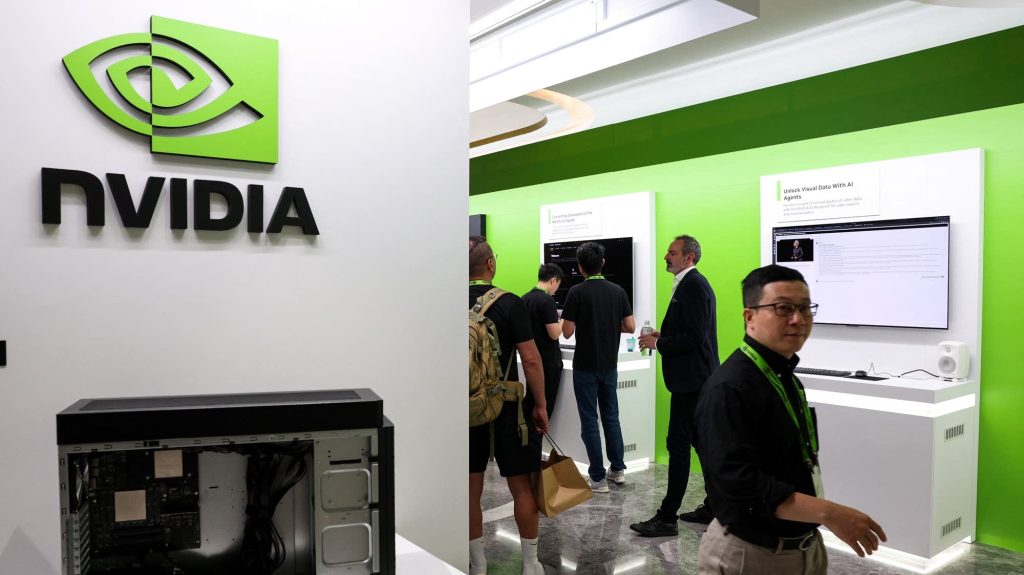
The belle of the artificial intelligence ball reported earnings — of course, that’s Nvidia, the computer chip design company that has become a bellwether for whether this AI economic revolution will turn out to be, well, actually revolutionary.
Over the first three months of 2025, Nvidia’s revenue was up 12% from the previous quarter and up 69% from a year ago, its latest earnings report said.
Part of the reason Wall Street thinks Nvidia is worth over $3 trillion, more than double what Walmart is worth, is Nvidia is basically the only game in town designing good AI chips.
So, coming up on three years after ChatGPT entered the zeitgeist, where’s the competition?
Fierce corporate rivalries are staples of many industries. Coke and Pepsi, Boeing and Airbus, Microsoft and Apple, Nvidia and, I guess, just Nvidia.
“Nvidia has about 85 to 90% market share in the AI chip market,” said Sebastien Naji, an equity research analyst at William Blair.
Not only are Nvidia’s AI chips faster and more powerful than most other chips out there, Naji said the firm has also “developed the broadest ecosystem” of developers and software.
“And so it’s just so much easier to … build an application, build an AI model on top of those chips,” he said.
Where are the other semiconductor companies? The Intels and AMDs of the world, surely they can build an AI chip and software somebody wants?
“Traditional semiconductor makers have struggled to compete with Nvidia primarily because of their architecture. Most of these companies did CPUs. Nvidia does GPUs,” said Pat Moorhead, CEO of Moor Insights and Strategy. He worked in the chip industry for decades.
CPUs are what powers your laptop. GPUs were primarily used to power video games, until Nvidia discovered they could power robot brains.
Big tech companies like Google and Meta have developed their own AI chips, although they’ve mostly been used for internal purposes so far.
Kat Duffy, a senior fellow for digital and cyberspace policy at the Council of Foreign Relations, said in the near future, Nvidia’s biggest competition may come from China. Maybe not for top-of-the-line Ferrari chips, but good enough Toyota Camry AI chips.
“Once Chinese companies get a handle on producing decent quality, inexpensive chips, there will be an enormous thirst in the global market to acquire that type of chip,” she said.
Duffy said Chinese companies like Huawei are a few years behind Nvidia’s latest generation of chips. But:
“Think about Huawei’s phones, which, when they started out, were not very quality phones but are now really significant competitors,” to iPhones and Androids, she said.



